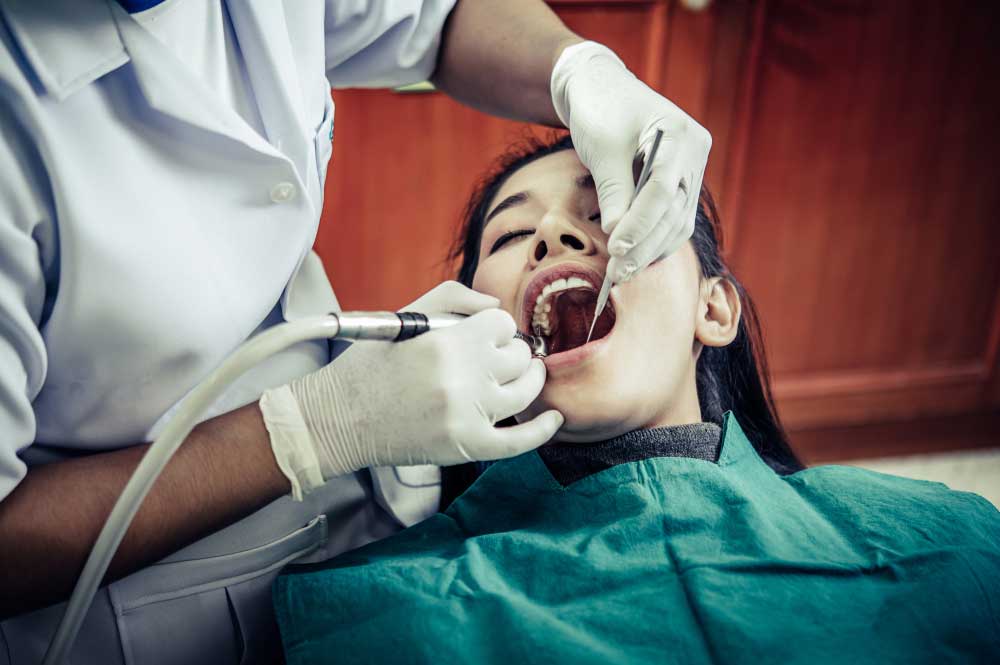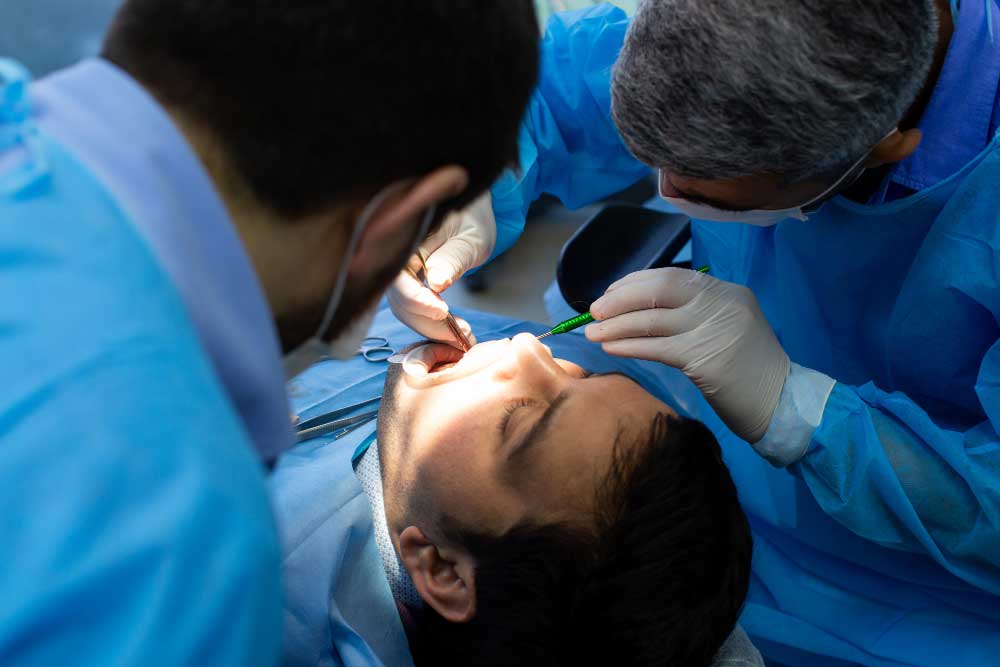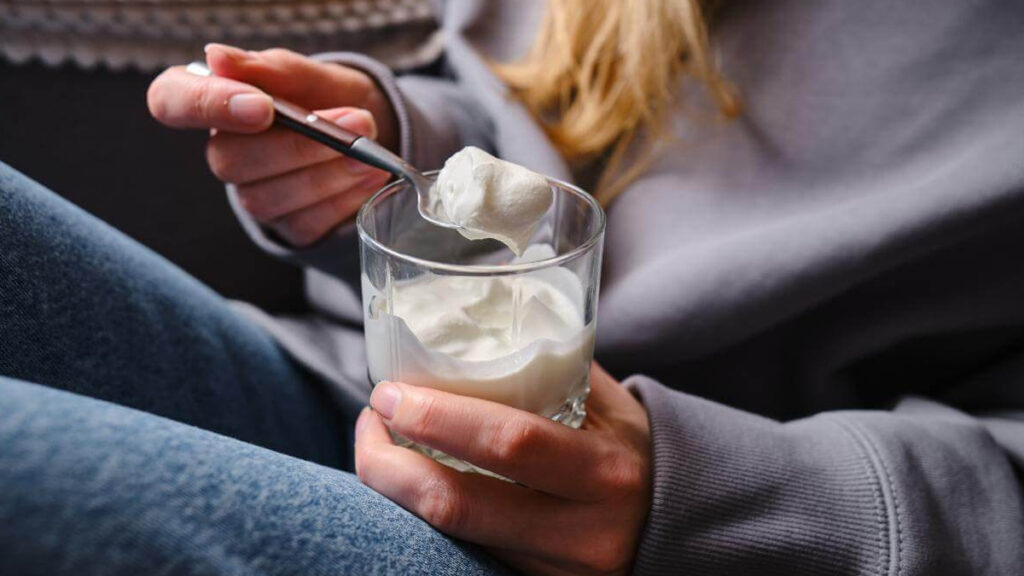Table of Contents
ToggleWisdom teeth removal is a common procedure, but the recovery process requires special care, particularly when it comes to your diet. Eating the right foods helps to promote healing, prevent complications like infection or dry socket, and ensure you get enough nutrition while avoiding discomfort. This guide covers everything you need to know about what to eat and avoid after wisdom teeth removal, from immediately post-surgery to the weeks that follow.
Why Diet Matters After Wisdom Teeth Removal
After wisdom teeth removal near me, the surgical site needs time to heal. The gums and jaw are sensitive, and chewing tough or crunchy foods can cause irritation, lead to infection, or even dislodge blood clots, which can result in dry socket—a painful condition that prolongs healing.
A soft food diet helps protect the surgical site, reduces the risk of complications, and allows you to maintain proper nutrition during the healing process. Knowing what to eat and what to avoid is crucial for a smooth recovery.
Foods to Eat After Wisdom Teeth Removal
In the first few days after surgery, focus on soft, easy-to-eat foods that require minimal chewing. These foods should also be nutrient-dense to support your body’s recovery.
1. Smoothies
Smoothies are an excellent post-surgery meal option. They’re easy to consume, nutritious, and you can pack them with fruits, vegetables, and protein powders to ensure you get the vitamins and minerals needed for healing. Opt for cool, rather than icy smoothies, as cold drinks can be soothing without being too harsh on your sensitive mouth.
Tip: Avoid using a straw to drink smoothies, as the suction can dislodge the blood clot and lead to dry socket.
2. Mashed Potatoes
Mashed potatoes are soft, easy to swallow, and can be prepared in a variety of ways to keep meals interesting. You can add butter, cheese, or a little gravy for extra flavor, but make sure the consistency remains smooth and creamy without any lumps that require chewing.
3. Applesauce
Applesauce is a great way to satisfy a craving for something sweet while being gentle on your healing gums. It’s soft, easy to swallow, and provides a healthy dose of vitamins. Opt for unsweetened applesauce to avoid excess sugar, which can increase the risk of infection.
4. Yogurt
Soft, plain yogurt is another ideal food after wisdom teeth removal. It’s smooth, nutritious, and full of probiotics that can aid digestion and help balance gut bacteria, which can be disrupted by any antibiotics you may be taking after surgery. Avoid yogurts with chunks of fruit or seeds, as these can irritate the surgical site.
5. Soups and Broths
Broths and blended soups are comforting and packed with nutrients. Tomato soup, creamy pumpkin soup, or bone broth are excellent choices, as they are rich in vitamins and minerals. Ensure the soups are lukewarm, not hot, to avoid irritating the wound.
6. Scrambled Eggs
Eggs are soft, full of protein, and easy to chew, making them an excellent food option post-surgery. Scrambled eggs, in particular, are easy to prepare and can be made to a very soft consistency, providing essential nutrients while being gentle on your mouth.
7. Oatmeal and Cream of Wheat
Oatmeal and other soft cereals like cream of wheat can be eaten once you’re ready for a little more texture in your diet. Make sure they’re fully cooked to a soft consistency and avoid adding any crunchy toppings like nuts or seeds.
Foods to Avoid After Wisdom Teeth Removal
Certain foods can irritate the surgical site, delay healing, or increase the risk of complications like infection or dry socket. It’s important to steer clear of these foods during your recovery, else it could drive up the wisdom teeth removal price.
1. Crunchy Foods
Crunchy foods such as chips, popcorn, nuts, and granola are a big no-no after wisdom teeth removal. Their hard texture can poke the surgical site, causing pain and irritation, and small particles can get stuck in the extraction area, leading to infection.
2. Hard Foods
Avoid biting into hard foods like raw vegetables, fruits like apples, or tough cuts of meat. These foods require excessive chewing, which can be uncomfortable and may dislodge the blood clot necessary for healing. This could also increase the wisdom teeth removal cost as well.
3. Spicy Foods
Spicy foods can cause irritation at the extraction site and may even increase swelling or discomfort. It’s best to avoid anything spicy for at least a week after surgery, or until your mouth has healed sufficiently.
4. Hot Foods and Beverages
Heat can disrupt the healing process by irritating the tissues around the surgical site. Avoid hot foods and drinks, such as soups, tea, or coffee, during the initial recovery period. Lukewarm or room-temperature items are safer options.
5. Acidic Foods
Foods like citrus fruits (lemons, oranges, tomatoes) and vinegar-based dressings can cause a stinging sensation in the mouth and irritate the healing tissue. Acidic foods should be avoided until the extraction site is fully healed.
6. Chewy or Sticky Foods
Chewy foods such as gummy candies, caramels, or even tough meat can cause unnecessary strain on your jaw and gums. These foods can also get stuck in the extraction area, making it harder to maintain oral hygiene.
7. Alcohol and Carbonated Drinks
Alcohol can interfere with the healing process and should be avoided for at least 48 hours after surgery. Carbonated drinks, such as soda, can dislodge the blood clot and irritate the surgical area, potentially causing dry socket.
Wrapping Up: A Gentle Diet for Fast Recovery
Eating the right foods during wisdom teeth removal recovery is key to a smooth and speedy recovery. Soft, nutritious options like smoothies, soups, and mashed potatoes will help you heal faster, while avoiding crunchy, spicy, and acidic foods will prevent complications. Remember, the more careful you are with your diet, the quicker you’ll be back to enjoying all your favourite foods again.
Frequently Asked Questions:
1. How Soon Can I Start Eating Solid Foods After Wisdom Teeth Removal?
Answer: Typically, you should stick to soft foods for the first 24 to 48 hours post-surgery. Gradually, as the initial swelling and discomfort subside, you can begin to incorporate soft solids into your diet. Most people can start eating soft solids, like cooked pasta or scrambled eggs, about 5-7 days after the surgery. However, it’s crucial to avoid any hard, crunchy, or sticky foods until your dentist or oral surgeon confirms that it’s safe to do so. This usually happens around 1-2 weeks post-surgery, depending on your individual healing process.
2. Can I Drink Coffee or Tea After Wisdom Teeth Removal?
Answer: You should avoid drinking hot coffee or tea for the first few days after surgery, as the heat can irritate the surgical sites and potentially increase swelling. Instead, opt for lukewarm beverages. Additionally, avoid using a straw when drinking any liquids, as the suction can dislodge the blood clot that is crucial for healing. Once the initial healing period has passed, you can reintroduce coffee and tea, but ensure they are at a safe temperature to avoid discomfort.
3. What Are the Best Types of Smoothies to Drink After Wisdom Teeth Removal?
Answer: Smoothies are an excellent choice post-surgery, but they should be prepared with care. Opt for smoothies that are nutrient-rich and easy on the mouth. Blend fruits like bananas, berries, and melons with yogurt or milk for added protein and calcium. Avoid using seeds or fibrous vegetables like spinach, which can irritate the extraction sites. Ensure the smoothie is cool but not ice-cold to prevent discomfort. Smoothies can be an effective way to get essential vitamins and minerals while maintaining a soft diet.
4. How Can I Prevent Dry Socket After Wisdom Teeth Removal?
Answer: Dry socket occurs when the blood clot at the extraction site is dislodged or dissolves prematurely, exposing the bone and nerves. To prevent dry socket, avoid using straws, refrain from smoking, and steer clear of hard, crunchy foods that could disturb the clot. Follow your dentist’s aftercare instructions meticulously, including keeping the surgical area clean and avoiding any vigorous rinsing. If you experience severe pain or notice symptoms of dry socket, contact your dentist immediately for treatment.
5. What Should I Do If I Experience Nausea After Eating?
Answer: Nausea can occur due to several factors, including the effects of anaesthesia or medications. If you experience nausea after eating, it might be helpful to eat very small amounts of bland, easy-to-digest foods and drink clear liquids. Ginger tea or ginger ale (without carbonation) can help soothe nausea. If nausea persists or is severe, consult your dentist or healthcare provider, as they may need to adjust your medication or provide additional advice. Maintaining hydration and gradually reintroducing foods into your diet can also help your digestive system adjust.




